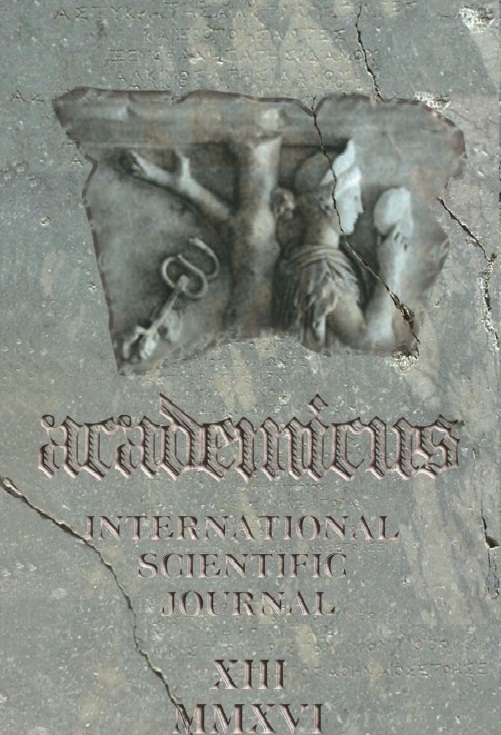Armenia, the Armenians: between memory and future
Armenia, the Armenians: between memory and future
Author(s): Maria Immacolata MaciotiSubject(s): Social Sciences
Published by: Academicus
Keywords: archives; correspondences; witnesses; collation of memories and history; migration; recognition; genocide
Summary/Abstract: The article recalls how in 2015, the year of the centenary of the Armenian Genocide,important publications emerged, shedding a light on the incident that will be difficultto ignore. In particular, it was the archives of the Congregation for the OrientalChurches, the Vatican Secret Archives and the Historical Archive of the Secretariat ofState which offered up precious material for the knowledge of what was happeningto Armenians in Turkey to Georges-Henri Ruyssen SJ. To the latter is owed a valuableand significant work of reconstruction undertaken over many years, and consistingof eight volumes. These contain letters written in Turkey by those in contact withthe people, who with their own eyes saw what was happening, and who followedwhat was occurring with dismay. Their relationship with the territory and their directexperience are fundamental.The correspondences begin in the years 1894-1896, of which volume IV, rangingfrom 1908 to 1925, is drawn precisely from the Secret Vatican Archives(ASV) as wellas the Historic Archives of the Secretariat of State, the Section for Relations withTerritories (SS.RR.SS). The author also points out a small valuable contribution byJewish intellectuals of the time, translated into Italian with the title Pro Armenia. Sheunderlines how, immediately, some Jews tried to intervene, to stop the genocide, andto assist Armenians in various ways.Today, it is difficult to ignore what happened, to ignore and to reduce what historicallyis the first genocide of the twentieth century in Europe. An event which has beenminimized and denied: whose effects are still being felt today, and which has left atrail at individual, family and social levels. Armenian terrorism, which has resultedin attacks and deaths in Turkey and elsewhere, derives from these negations. Thesame is the case for a strong nationalism still prevalent today in the Republic ofArmenia, which is constrained by circumstances to adopt a defensive political stanceand – out of necessity – to maintain good relations with Russia. We have to wish that,after those resounding acknowledgement of the genocide, Armenia will be able tolook forward to a more serene future
Journal: Academicus International Scientific Journal
- Issue Year: VII/2016
- Issue No: 13
- Page Range: 013-025
- Page Count: 13
- Language: English

